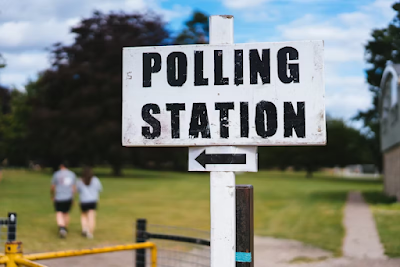The Biggest Loser in the American Elections: The Election Pollsters
Spare a thought for American election pollsters. After predicting massive victories for the Democrats in the two previous presidential elections, they again forecasted a tight election with a lead for the Democrats led by Harris. As the votes are counted, they are again proven wrong. Rather than waiting for days for ballots to be counted and then recounted to ensure that slim margins of errors are minimized in tight races, a picture emerged of the Republicans taking a massive lead in places they should not be, most notably in Florida where Trump won by 13%.
Clearly, the old way of doing election predictions no longer works. Trump's polarizing media presence means backlash for some members of the general public would receive from their family members, coworkers, and neighbors to vocally support him. In such circumstances, simply calling up people on the phone and asking them who they will vote for may not lead to an honest answer. More than ever in the past, direct sampling of the population is bound to miss the hidden Trump supporters who would prefer to keep their preferences private so that their professional and private lives are not damaged.As many Trump supporters self-censor in response to pollsters, many of these pollsters, many of whom are affiliated with major media outlets, should question themselves how responsible they are for this prevalent self-censorship. Many media outlets have zoomed in on Trump's legal troubles, moral hazards, and offhanded comments, they have almost peddled what they believed to be a self-fulfilling prophecy that he is simply unelectable to those who are even remotely logical in their thinking. The almost anti-Trump mainstream messaging has zoned out any pro-Trump voice as eccentric and marginal.
But democracy is not about who talks the loudest, but one person one vote. Trump's victory clearly showed that beyond the theatrics, whether sympathy-worthy like the attempted assassination or the vocal support from polarizing figures like Elon Musk, there lies a solid foundation for his popular support. Beyond his exaggerated statements about immigrants, Democrats, and foreign imports destroying America's economy and cultural values lies widespread resonance that national security and the country's economic future indeed need a new direction that the Democrats have failed to provide.As election pollsters undoubtedly reflect on tweaking their poll sampling methodologies, keeping in mind some of those hidden resonances may be a good start. Rather than asking which party or which person they will vote for, a better proxy may be to question them about a menu of different issues and get their answers on what they believe to be the suitable ways to tackle these issues. Matching up voter opinions against the platforms offered by the candidates may provide a much more accurate and nuanced view of how the candidates would fare in the ballot box.
Of course, such a sweeping revamp of poll sampling methods will be difficult. With American politics increasingly polarized, voting one way or the other is as much an affirmation of tribal identity as a result of thinking about policymaking. Capturing that emotional resonance, irrespective of political beliefs, may also be significant to understanding the average voter. Perhaps the more emotionally distant methods of surveying voters, through text-based questionnaires and phone calls, will be increasingly ineffective compared to, say, face-to-face conversations.The resulting changes will certainly be more expensive for the pollsters. People are busy. No one enjoys a long conversation with strangers asking pointed questions about political beliefs and preferences. With a limited budget and a big sample size to collect, pollsters will not have the luxury of building emotional connections with interviewees over hours and days, something that may be necessary for Trump supporters to truly come out of their shells. More accuracy, then, would be less productivity in gathering output and more labor cost for collecting and analyzing data.
Perhaps having conversations with voters will become ever less important for poll sampling. With the advent of artificial intelligence, it has become possible to break down voting trends based on a variety of factors that would have never been considered pertinent to recognize. If some pollster can find ways to dissect the average person into hundreds, thousands, or even tens of thousands of different variables, and find a systematic way to determine those quantifiable values for elections past, present, and future, perhaps the election pollster will enter a new technological age.




Comments
Post a Comment